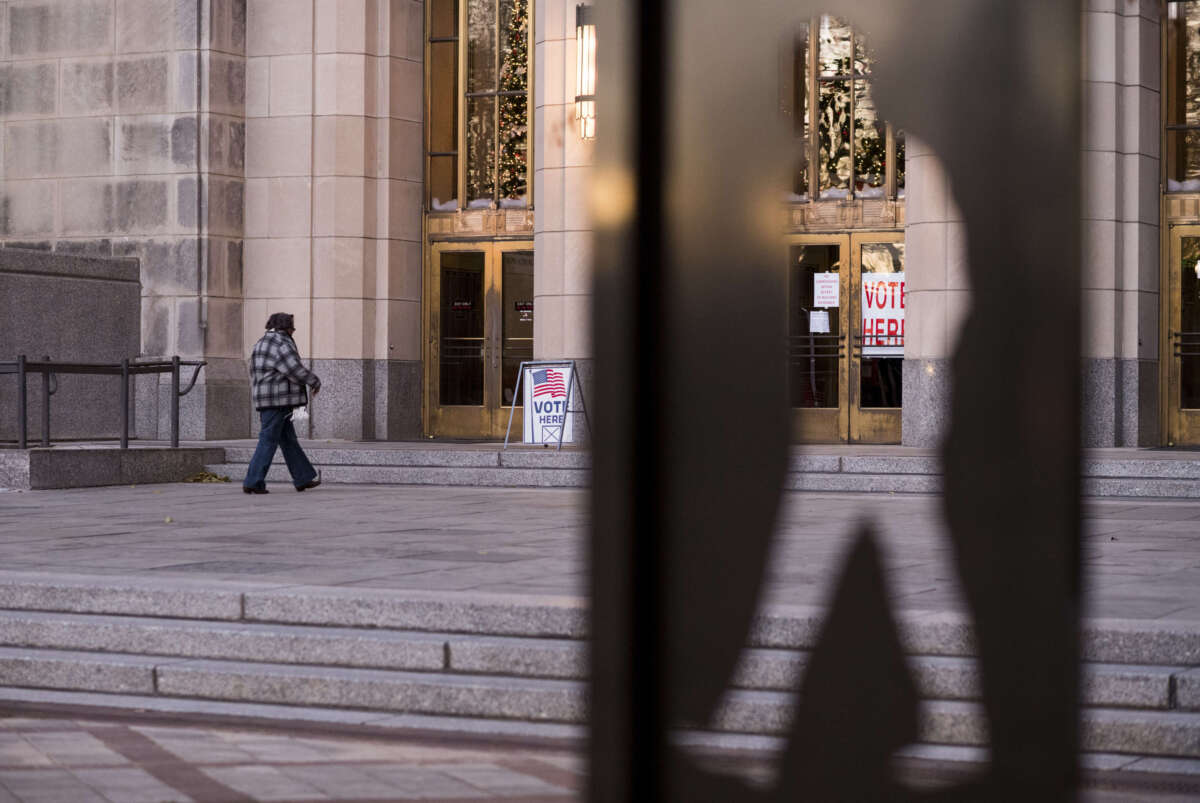A federal judge has blocked a portion of an Alabama state law passed earlier this year concerning absentee ballots, finding that it illegally limited how people who are disabled, blind or have difficulty reading can be helped in casting their votes.
Chief U.S. District Judge David Proctor stated in his ruling, which was issued on Tuesday, that the state law was in violation of federal protections, particularly Section 208 of the Voting Rights Act, which protects the rights of voters who may not be able to request or fill out a ballot without assistance.
The law, Senate Bill 1 (SB 1), “unduly burdens the rights of Section 208 voters to make a choice about who may assist them in obtaining and returning an absentee ballot,” Proctor concluded.
SB 1 prohibits “any person from ordering, requesting, collecting, prefilling, obtaining, or delivering an absentee ballot application or absentee ballot of a voter.” However, Section 208 allows voters who have disabilities to “be given assistance by a person of the voter’s choice, other than the voter’s employer or agent of that employer or officer or agent of the voter’s union.”
“The requested injunction will serve to ensure certain disabled, blind, and illiterate voters are not disenfranchised” in this year’s election, Proctor added in his ruling.
A coalition of voting rights groups who challenged the law for violating Section 208, which includes the Alabama chapter of the NAACP, the League of Women voters, Greater Birmingham Ministries, the American Civil Liberties Union and the Alabama Disabilities Advocacy Program, lauded the ruling by Proctor, disagreeing with Marshall’s assessments.
“Our democracy works best when everybody can participate in it, and this ruling prevents the enforcement of a cruel law that would have suppressed the voices of blind, disabled, and low-literacy voters,” the coalition said in a joint statement.
Alabama Attorney General Steve Marshall plans to appeal the injunction.
“Alabama’s elections will be less secure and the voting rights of the State’s most vulnerable voters less protected if SB1’s injunction remains in place,” Marshall’s office contended.
Critics of the law, including William Van Der Pol Jr., senior trial counsel for the Alabama Disabilities Advocacy Program (ADAP), told Truthout in July that SB 1 is “just pure voter suppression.”
“Individuals, particularly individuals with disabilities whose only realistic way to vote is absentee, are being excluded from the system,” Van Der Pol said.
Angry, shocked, overwhelmed? Take action: Support independent media.
We’ve borne witness to a chaotic first few months in Trump’s presidency.
Over the last months, each executive order has delivered shock and bewilderment — a core part of a strategy to make the right-wing turn feel inevitable and overwhelming. But, as organizer Sandra Avalos implored us to remember in Truthout last November, “Together, we are more powerful than Trump.”
Indeed, the Trump administration is pushing through executive orders, but — as we’ve reported at Truthout — many are in legal limbo and face court challenges from unions and civil rights groups. Efforts to quash anti-racist teaching and DEI programs are stalled by education faculty, staff, and students refusing to comply. And communities across the country are coming together to raise the alarm on ICE raids, inform neighbors of their civil rights, and protect each other in moving shows of solidarity.
It will be a long fight ahead. And as nonprofit movement media, Truthout plans to be there documenting and uplifting resistance.
As we undertake this life-sustaining work, we appeal for your support. Please, if you find value in what we do, join our community of sustainers by making a monthly or one-time gift.
